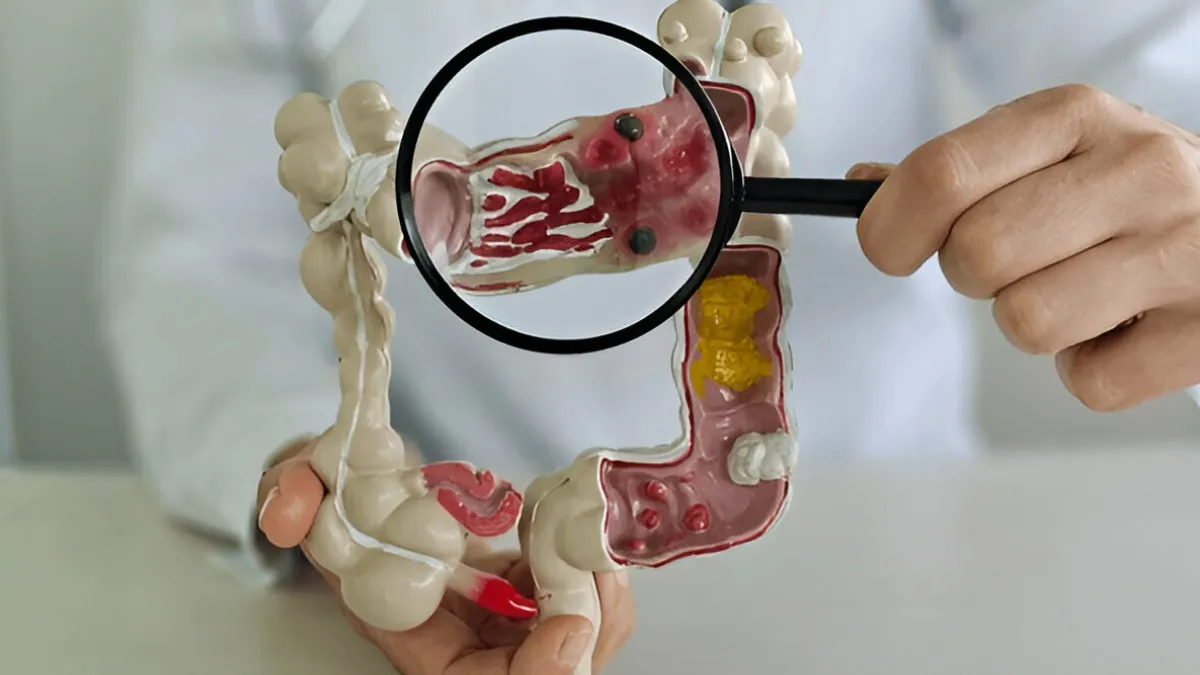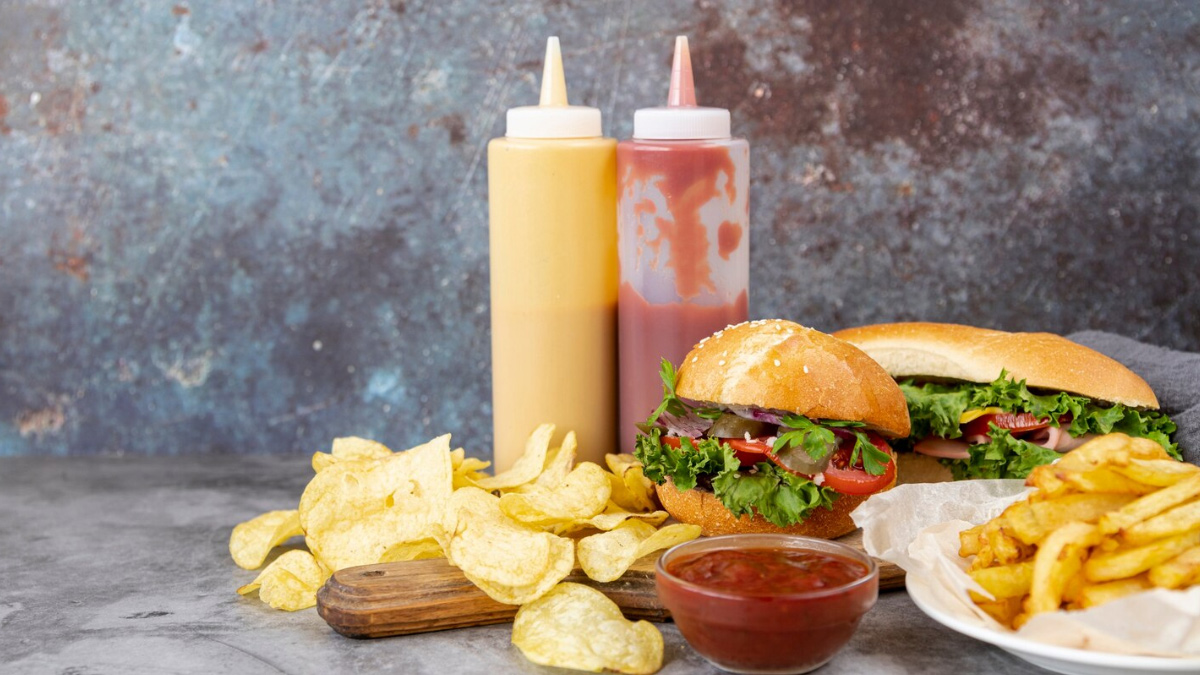
Colon cancer, also known as colorectal cancer, is one of the most prevalent forms of cancer globally, and studies indicate diet as being one of the strongest factors in prevention and susceptibility. Genetics and age do have a bearing, but what you eat daily can either lower or raise your risk. For those already at risk due to family history, inflammatory bowel conditions, or lifestyle factors, paying attention to what you eat becomes even more crucial.
Table of Content:-
We spoke to Reshma Nakte, Clinical Nutritionist, Weight Loss Expert, Lactation Expert, ICMR-NIN, who listed foods to avoid to protect your colon health.
Foods to Avoid If You’re at Risk of Colon Cancer
1. Processed Meats

Bacon, ham, sausages, hot dogs—these are often convenient and tasty, but they’re also classified as Group 1 carcinogens by the World Health Organization. That means there’s strong evidence that they cause cancer, particularly colon cancer.
They are preserved with nitrates and nitrites, which can combine with amino acids in the gut to create cancer-causing substances. It has been found that even small quantities of processed meat eaten regularly raise the risk of colon cancer.
What to do instead: Opt for lean, unprocessed proteins like chicken, fish, tofu, lentils, or beans. If you crave something smoky or salty, try grilled vegetables with spices.
2. Red Meat (In Excess)
Red meat, such as beef, pork, and lamb, is not banned outright, but consuming it regularly, particularly in high amounts, has been associated with increased colorectal cancer risk. The way red meat is cooked also matters; grilling, barbecuing, or pan-frying can produce harmful compounds like heterocyclic amines and polycyclic aromatic hydrocarbons, both of which are potentially carcinogenic.
Healthier swap: Try incorporating more plant-based meals throughout the week. If you do eat red meat, keep portions small and cook it gently (baking or stewing rather than charring).
Also Read: Persistent Stomach Pain: Can It Be Advanced Colon Cancer?
3. Highly Processed Foods

Pre-packaged snacks, frozen dinners, sweetened breakfast cereals, and instant noodles are not only low in fibre; they're usually filled with refined carbohydrates, added sugars, unhealthy fats, and artificial ingredients. "These types of ultra-processed foods have been associated with gut inflammation, weight gain, and a higher risk of several chronic diseases, including colon cancer," added Nakte.
Pro tip: Stick to whole, fresh foods as much as possible. When shopping, aim for ingredients you can pronounce and recognise. A good rule of thumb: If it comes in a box and has a long list of ingredients, it’s probably not great for your gut.
4. Alcohol
Alcohol may damage the lining of the colon, and long-term consumption has been associated with a higher risk of colorectal cancer. Risk goes up dramatically when heavy or binge drinking is involved, but even moderate consumption will carry a risk if you have something to damage already. When alcohol is metabolised, it creates a chemical called acetaldehyde that is well-documented to cause DNA damage and to inhibit cellular repair.
Warning: You should avoid sipping even one tablespoon of alcohol, as it can have severe health complications for people with colon cancer.
5. Low-Fibre, High-Sugar Diets

Fibre acts like a broom for your digestive tract; it helps waste move through smoothly and nourishes healthy gut bacteria. A diet low in fibre and high in refined sugars (white bread, pastries, sugary beverages) can lead to constipation, gut imbalance (dysbiosis), and inflammation, all of which can increase colon cancer risk.
Solution: Load up on fruits, vegetables, legumes, whole grains, and seeds. Your gut microbes will thank you, and so will your colon.
Also Read: Early Screening For Colorectal Cancer: What It Involves And Its Importance For Young People
6. Fried Foods
Fried chicken, French fries, and other greasy treats tend to include unhealthy trans fats and a lot of saturated fats, both of which are promoters of inflammation. Regular consumption of fried foods may increase the risk of colon and other gastrointestinal cancers.
Try this instead: Bake or air-fry your food using healthy oils like olive or avocado oil, and limit takeout meals to occasional treats rather than daily staples.
7. Artificial Food Colours
"You should also refrain from consuming artificial food colours used in cotton candy and fast food items. While additives may make food look more appealing, they could play a role in increasing colon cancer risk," warned Nakte. When consumed regularly, they may alter gut microbiota, promote low-grade inflammation, and lead to cellular changes in the colon over time.
Natural swap: Choose foods that are naturally vibrant, such as beets, turmeric, saffron, spinach, and berries. These not only add colour to your plate but are loaded with antioxidants and anti-inflammatory compounds that protect the colon and overall health.
Bottomline
Nakte concluded, "The connection between diet and colon cancer is undeniable. Although no single food is a cause or a prevention of cancer, sustained eating habits contribute significantly. If you're at risk for colon cancer, begin by eating thoughtful, gut-friendly foods that suppress inflammation. Add to this screenings, exercise, and tobacco avoidance to take a forceful stance against colorectal cancer. Prevention, after all, begins at the dinner table."
[Disclaimer: This article contains information provided by an expert and is for informational purposes only. Hence, we advise you to consult your professional if you are dealing with any health issue to avoid complications.]
Also watch this video
How we keep this article up to date:
We work with experts and keep a close eye on the latest in health and wellness. Whenever there is a new research or helpful information, we update our articles with accurate and useful advice.
Current Version